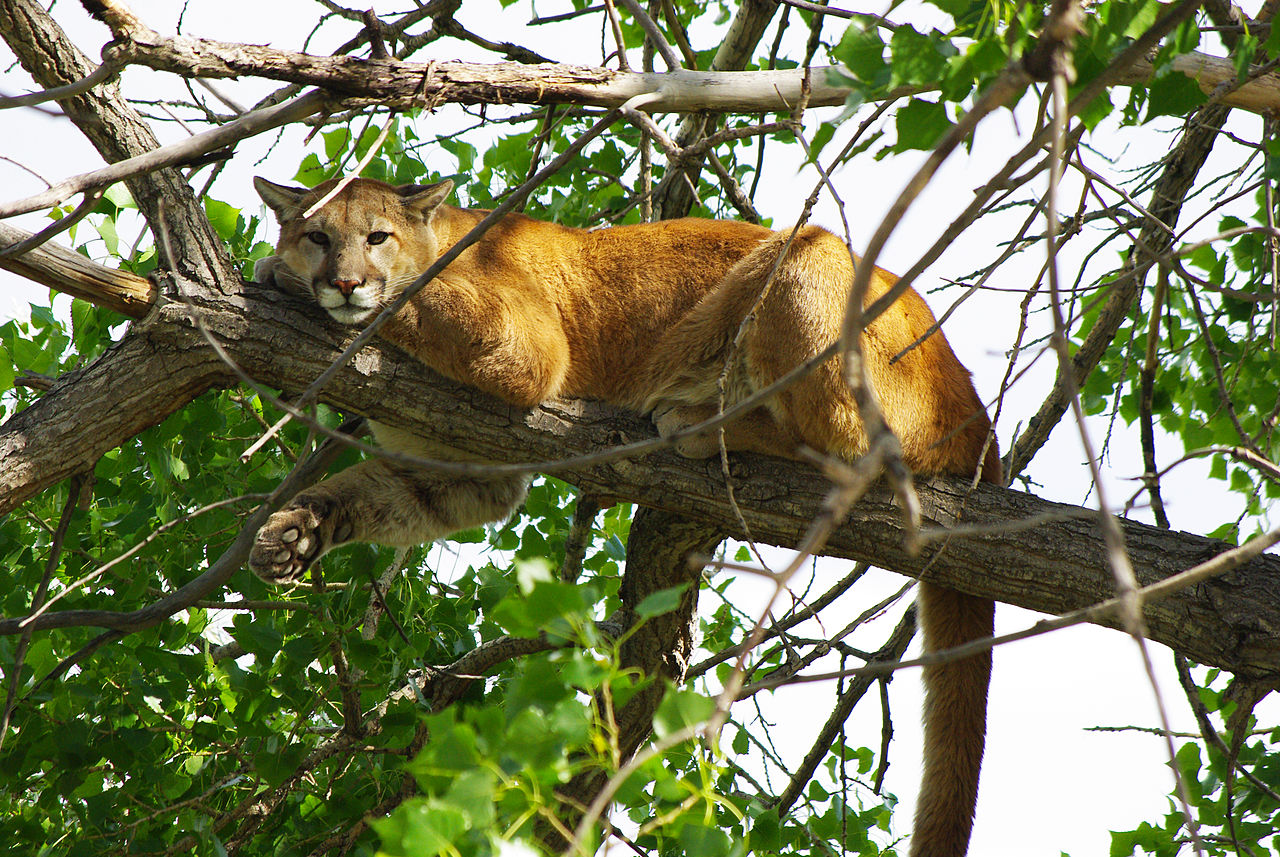
By Jerry Apker
The Boulder Weekly Oct. 16 op-ed about Proposition 127, quoted me correctly that lion populations will not explode nor will deer populations be decimated if Proposition 127 — which would ban trophy hunting of mountain lions, bobcats and lynx — passes. But the writers did not provide full context for my statements.
I am an expert in puma ecology and management because I worked with them for 38 years for Colorado Parks and Wildlife. The last 17 years of my career, I was Colorado’s statewide carnivore biologist.
Lion predation, like all types of predation, is a complex relationship between prey, predator, landscape, abundance of primary and alternate prey and abundance of primary and meso-predators. Predation is never spread evenly across the landscape like butter over toast. Some herds and some species will suffer greater predation and in those cases, like small bighorn sheep herds, may be harmfully impacted by lion predation.
Prop. 127 will irreparably harm wild felid management by banning hunting, the best tool to manage these populations. Prop. 127 would also harm the agency and its professionals who have dedicated their lives to maintaining healthy and abundant wildlife in Colorado.
Yet out-of-state extremists still wish to support the ballot measure. If successful, who will cover the costs to manage human-lion conflicts, or the costs when lions kill livestock, your neighbor’s goats, or alpacas at the organic wool producer down the road? Who will cover the costs of the research that has advanced our knowledge and improved your appreciation for these wild animals?

Want a different take?
Hunters, through license fees and excise taxes, pay for it now. Prop. 127 will wipe that away.
If approved, Proposition 127 will widen the polarization between urban and rural Colorado. As a resident of rural Colorado, I greatly enjoy mountain living and the deep bonds with nature my family and my fellow rural Coloradans form. As such, I can’t help but feel frustrated when urban residents attempt to implement statewide wildlife policy that will disproportionately impact communities like mine.
Since 1965, when lions were protected as a big game animal, Colorado grew from about 1.5 million people to nearly 6 million today. In that same time, mountain lions and bobcats have also responsibly increased, thanks to wise management. CPW management objectives and population monitoring strategies are anchored in scientific wildlife management. Research projects to more deeply understand predator-prey relationships and how hunting modulates lion populations are paid for by hunters.
I investigated the fatal attack on one of our young citizens, a Idaho Springs high schooler. My involvement in helping the state develop managed coexistence strategies was inspired by the passion to help Colorado have abundant lions that are well and safely managed.
In the book, Managing Cougars in North America, I wrote a chapter that provides guidance to wildlife management agencies for managing human-lion conflicts. Through my experience, I can confidently say that in a vastly human altered landscape, lions and bobcats need managed care through a well-funded program overseen by brilliant, experienced wildlife professionals.
Phrases like “trophy hunting” and “unethical hunting” are the stock-in-trade of extremists that seek to defeat our scientific wildlife management through misinformation. The fact is hunting just for a trophy and leaving meat to waste has been a felony violation in Colorado since I began my career as a wildlife officer.
Television ads supporting Prop. 127 claim lion predation helps eliminate chronic wasting disease (CWD) threatening deer populations. This is false. Credible research proves that actual predation has no effect on the spread or suppression of CWD. While it is true that predators will more often kill sickly prey, deer can be infected with CWD for years before exhibiting wasting symptoms. These symptomless animals shed infectious prions into the environment long before they die by fang and claw. This is just another red herring from proponents.
Rest assured, if Prop 127 passes, mountain lions will still be killed. CPW officers will pay some houndsmen to keep well-trained dogs ready to pursue and kill lions that threaten public safety or kill domestic stock.
Colorado depredation compensation laws only allow compensation for damage by big game. Prop 127 will declassify mountain lions. When stock owners can no longer be compensated for the cost of their loss, they will have zero tolerance for depredating lions.
More lions will also die by claw and fang in the blood competition for food, space and breeding. Other lions will starve, freeze or die from the many diseases that are growing in wild felids. Prop 127 offers no natural world nirvana, no matter what the TV commercials want you to believe.
The greatest help you can offer wild felid management in Colorado is to join me in voting no on Proposition 127.
Jerry Apker is a retired wildlife biologist. His 38 year career with Colorado Parks and Wildlife he served as a wildlife officer, wildlife officer supervisor, and during 17 years of his career he was Colorado’s carnivore biologist, responsible for mountain lion and bobcat management matters.
